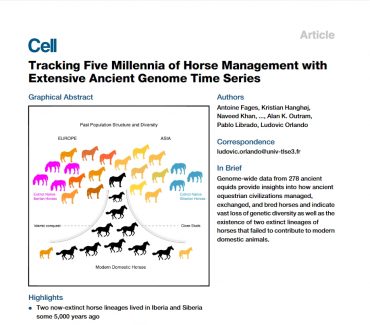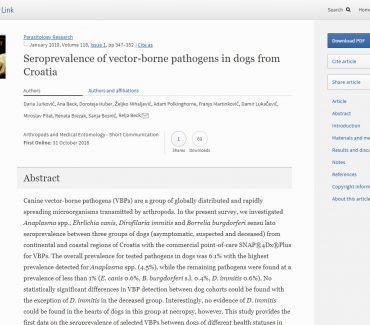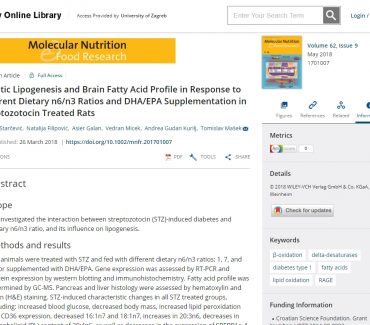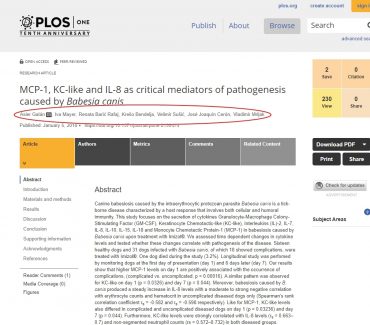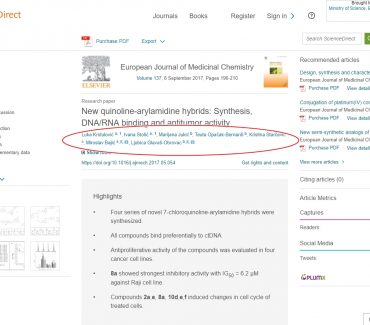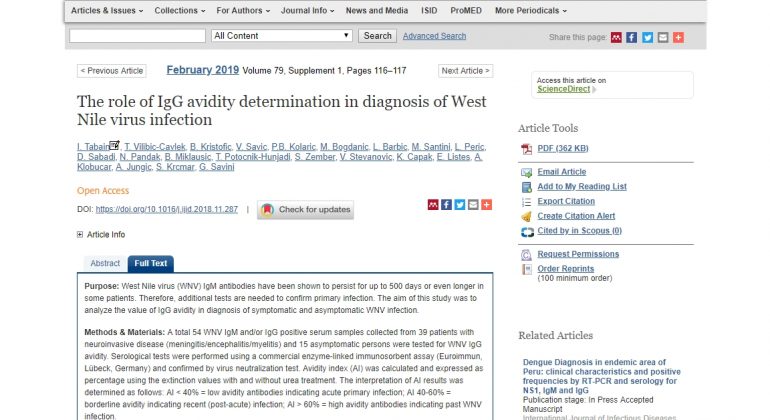
DOI: https://doi.org/10.1016/j.ijid.2018.11.287
Purpose: West Nile virus (WNV) IgM antibodies have been shown to persist for up to 500 days or even longer in some patients. Therefore, additional tests are needed to confirm primary infection. The aim of this study was to analyze the value of IgG avidity in diagnosis of symptomatic and asymptomatic WNV infection.
Methods & Materials: A total 54 WNV IgM and/or IgG positive serum samples collected from 39 patients with neuroinvasive disease (meningitis/encephalitis/myelitis) and 15 asymptomatic persons were tested for WNV IgG avidity. Serological tests were performed using a commercial enzyme-linked immunosorbent assay (Euroimmun, Lübeck, Germany) and confirmed by virus neutralization test. Avidity index (AI) was calculated and expressed as percentage using the extinction values with and without urea treatment. The interpretation of AI results was determined as follows: AI < 40% = low avidity antibodies indicating acute primary infection; AI 40-60% = borderline avidity indicating recent (post-acute) infection; AI > 60% = high avidity antibodies indicating past WNV infection.
Results: WNV IgM antibodies were detected in 47/87.0% samples: 39/100% patients with neuroinvasive disease and 8/53.3% asymptomatic subjects. Recent WNV infection was documented by low/borderline AI in 44/93.6% IgM positive samples. In 3/6.4% IgM positive samples, high AI was detected indicating persisting IgM antibodies from a previous infection. All 7 IgM negative samples showed high AI. In 33/84.6% patients with WNV neuroinvasive disease tested within 30 days after onset of symptoms AI was low. Six patients (15.4%) tested 34-50 days after disease onset showed borderline AI (42-60%) indicating earlier maturation of WNV IgG antibodies.
Conclusion: The results of this study indicate that IgG avidity differentiates current/recent WNV infection from persistent IgM antibodies both in patients with WNV neuroinvasive disease and asymptomatic persons. Since many patients showed rapid avidity maturation, a low IgG avidity is indicative of WNV infection within the previous month.

 Faculty of
Faculty of 